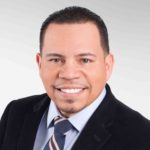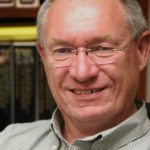
Q&A – What Habits Can Break Barriers to Building a Multiethnic Church?
It’s easy to think in generalities when it comes to pursuing multiethnic churches. So, what are some concrete habits each of us can practice which will lead to multiethnic churches? I recently sat down with four church leaders who are doing this well and asked them questions which get at the heart of how churches can be more intentional about pursuing multiethnic, multicultural churches. The church leaders are Michael Patterson (Atlanta, GA), Marcos Mercado (Wilmington, DE), Ronnie Rose (Greenville, SC), and Kerry Cox (St. Louis, MO). Other articles in this series: “Why Is It Worth It?” “What Gets in the Way?” “How Does Christianity Relate to Other Cultures?”
Q: What are some habits which can break down the barriers to building a multiethnic church?
Mike: If you’re a church leader, you need to have to have your own ministry outside of the church building. Where’s your fishing hole? Who is it that you are reaching out to building relationships with?
If you’re a church leader preaching on Sundays, and a guy walks into your service who is different from you, trying to meet him at a church office is not going to cut it. You’re going to need to go into his world. I think about Jesus and the tax collectors; Jesus said, “Hey, I’m going to go to your house and have dinner with you.” And here Jesus is, the Son of God, going into Matthew’s home and Zacchaeus’s home, and through those dinners, Jesus is meeting their friends.
Instead, we often want people to come into our space. I think it’s very challenging for Christians to go into other people’s circles and to engage the culture where people are. We would rather for them to come to us, but that wasn’t the ministry of Jesus.
“We would rather for them to come to us, but that wasn’t the ministry of Jesus.”
We learned that lesson doing ministry in Harlem. We didn’t have our own buildings at the time. So, when we did get together with people, we were going into their places, their neighborhoods, their circles. And we learned a lot. We learned that it is really crucial to let people know that you love them and that their lives are important enough for you to connect with them. Versus I’ll just talk to you Sunday when you come into the church building.
Kerry: Another habit is to ask whether your love is overriding your fear and insecurity. I hear people say all the time that they’re afraid to connect because they grew up in a different area or because their backgrounds are so different. Largely, it’s not really about race as much as insecurity and fear of the difference. It’s not necessarily because they’re looking down on people but because they think they can’t connect.
My response to them is to explain that what they’re really saying is that they don’t love that person enough to allow what they should be doing to overrule their fear. I encourage them to call it like it is: They just don’t love that person enough to go and do what they should.
“If people could let Christ’s love be the thing that pushes them and compels them, I think they’ll find out that a lot of those fears are really irrational.”
If people could let Christ’s love be the thing that pushes them and compels them, I think they’ll find out that a lot of those fears are really irrational. I mean, most of the people I connect with who look very different from me, I can still find a way to connect with them. It’s not because I’m so good at it, but because we’re humans. We share the same emotions in a lot of ways, and there are ways to connect.
Ronnie: We all have hindrances and obstacles in our hearts which get in the way of reaching people who are different from us. What really helps us work through these hindrances and obstacles is to make sure we’re truly serving people who don’t look like us. And people can tell whether you’re being real or not. They can tell when you don’t really accept them or respect them. As a leader, you want to cultivate the posture of a servant. Are you investing time and discipling people who are different from you? Are you being intentional about serving them?
“Are you investing time and discipling people who are different from you? Are you being intentional about serving them?”
Marcos: There was a time when I was leading a ministry in the Bronx mainly among people from the Caribbean. I didn’t feel like these were my people or that I was very effective until I really embraced the culture, specifically the Jamaican culture. Jamaicans are really proud of their heritage, so I made a trip to Jamaica. I started loving Jamaica.
And it had to be real; it had to be authentic. It couldn’t be just, “Oh, yeah, Jamaica is great.” I truly began to appreciate the culture.
But, like I said, there was a time when I didn’t. There was a time when I didn’t feel like I belonged. I thought God had picked the wrong leader. But I began to embrace their culture. I began to celebrate the diversity and love the things they love. I began to eat their food. I began to talk about what mattered to them. And that made all the difference.












